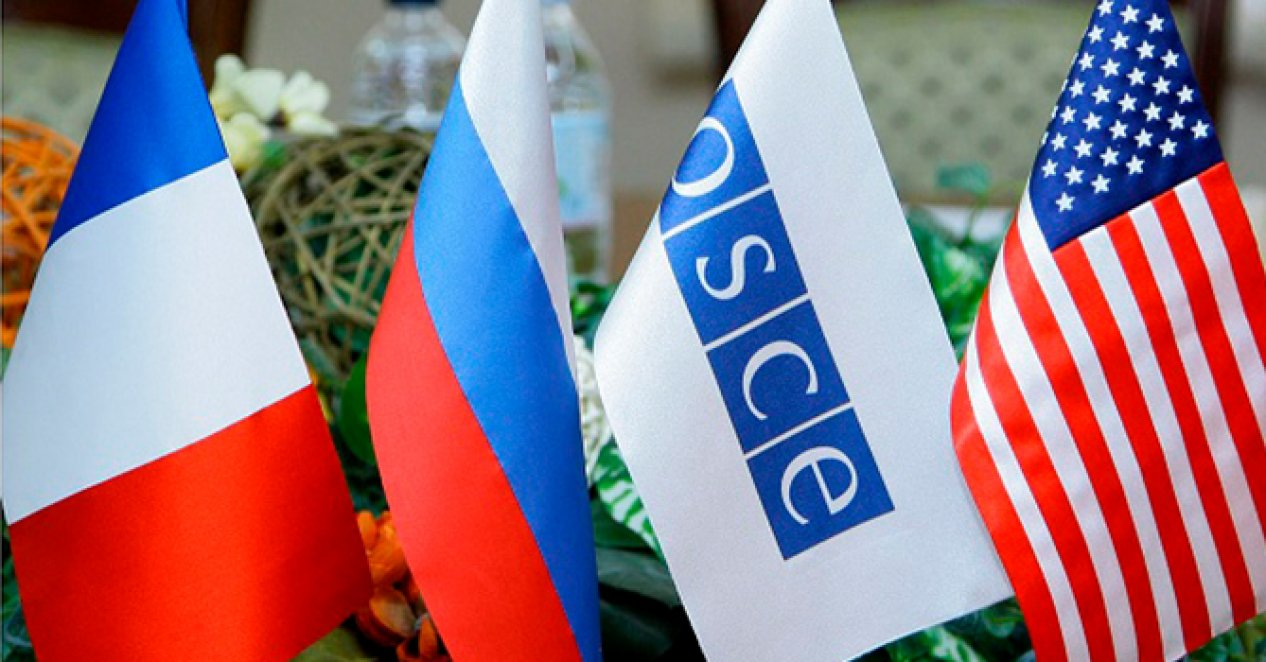
After the Second Karabakh War, the situation in the region changed radically. External players “state with satisfaction” that “the situation remains calm, systematic work continues to implement the statements of the presidents of Russia and Azerbaijan and the prime minister of Armenia on Karabakh dated November 9, 2020 and January 11, 2021.” The same players, however, sometimes express “readiness to coordinate on various aspects of the Karabakh settlement, including through the OSCE Minsk Group.” In short, the situation has changed, but one thing remains the same - the topic of the OSCE Minsk Group.
The OSCE Minsk Group is a group of OSCE member states created in 1992 to resolve the issue of a peaceful settlement of the conflict in Nagorno-Karabakh. The OSCE Minsk Group co-chairs are France, Russia and the US.
Faktyoxla Lab. has tried to find out to what extent the topic of the OSCE Minsk Group is relevant and to what extent this structure can be involved in the processes that are currently taking place in the region.
To begin with, Baku remembers well that during the Second Karabakh War, one of the OSCE Minsk Group co-chairs openly held a pro-Armenian position. There were even calls for the expulsion of Paris from the list of the co-chair mediators. As arguments, facts were given that, firstly, Azerbaijan considers the conflict to be over, and secondly, since a part of Karabakh with the center in the city of Khankendi came under the temporary control of the Russian peacekeeping forces, then presence of Russia alone, which played the dominant role in the end of hostilities and in the legal settlement of the Armenian-Azerbaijani conflict is quite enough. That is, the OSCE Minsk Group has exhausted its potential, no one needs it anymore, and since the so-called problem of the Nagorno-Karabakh conflict has disappeared into oblivion, this structure can resume its activities only in the format of restoring a peaceful and stable life in the post-conflict period.
Baku believes that cardinal changes are needed to amend the mandate of the OSCE Minsk Group or transfer it to a different format. For example, it can contribute to resolving the issue of building mutual trust between Baku and Yerevan, since it plays a mediating role.
By the way, Moscow also thinks so, and in the middle of last year, Chair of the Federation Council Committee on International Affairs Grigory Karasin said: “I think that they [the OSCE Minsk Group Co-Chairs: Russia, France, the US] could play a useful role. These three countries have experience and solid external support. It seems that the practice of regular meetings of the foreign ministers of Azerbaijan and Armenia under the auspices of the OSCE co-chairs could be resumed, which would receive a tangible international resonance.”
As for the Armenian side, the rare joint statements of the OSCE Minsk Group co-chairs, to a greater extent, but not completely, suit it. It is important for Armenia that the co-chairs resume their activities in the same format, in the same composition and with the same mandate. Since the role of Russia in the settlement of the conflict has increased dramatically, they are not satisfied with the possible independent and sole mediating mission of Moscow.
Armenia worries that the mediators, firstly, after the end of the war, never mentioned the principle of respect for the nation’s right to self-determination, and secondly, they don’t want to take the initiative themselves and only offer their help in organizing a dialogue around the topics that the parties will determine themselves.
Nevertheless, the Armenian authorities have always expressed their readiness to resume negotiations with the participation of OSCE representatives. Armenian political scientists have repeatedly pointed out that the return to the format of the OSCE Minsk Group is beneficial to Armenia and “is supported by the Western countries.” The Azerbaijani authorities can also agree to the resumption of negotiations if ways of achieving peace are proposed on the basis of mutual recognition of the territorial integrity of the two countries. Baku is confident that the OSCE Minsk Group co-chairs will better focus on the most important issues of the new post-conflict period.
After all, a resolved conflict creates prospects for the establishment of normal relations between Azerbaijan and Armenia based on the principles of sovereignty, territorial integrity and inviolability of internationally recognized borders. The relevance of the OSCE Minsk Group as a mediator in the settlement of the conflict has disappeared, since the military component of the problem has been resolved, Azerbaijan has liberated most of its territories, and secession of hostilities has been established, which has been observed for more than a year.
Today’s realities are such that a new platform for cooperation between the six countries of the region - Turkey, Azerbaijan, Russia, Iran, Georgia, Armenia (the so-called “platform of six” or the 3+3 format) has already been created, which gives hope for the restoration of peaceful life in region. The platform provides for post-war regional cooperation among Armenia, Azerbaijan and Georgia with three large and influential neighbors - Turkey, Russia and Iran. The leaders of Azerbaijan and Turkey propose unblocking all communication routes and establishing transit traffic through the territory of Armenia, which was stopped after the start of the Karabakh conflict.
This is while the further fate of the OSCE Minsk Group will largely depend on the prospects of this very platform.




















